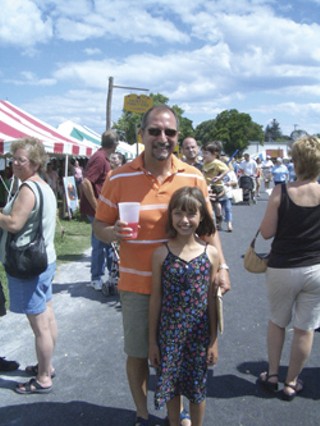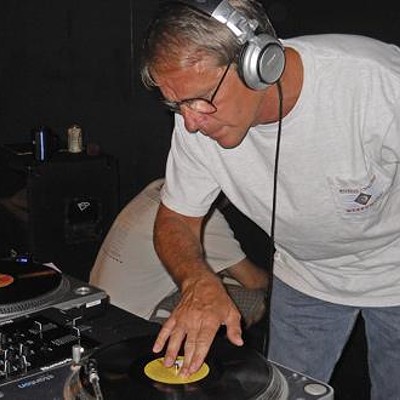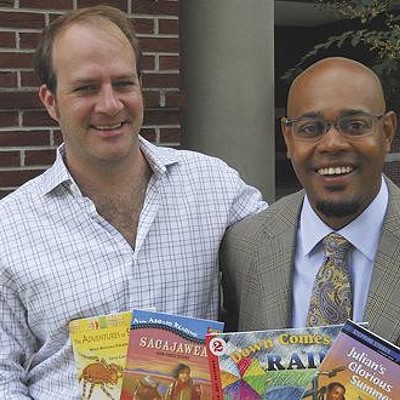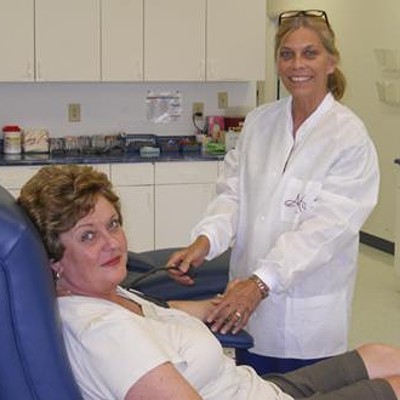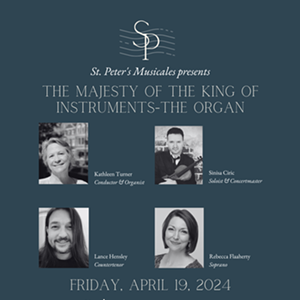KARL KREIS, with his understated conversational style and his penchant for dry, slightly offbeat jokes, collected a wide circle of friends during the 13 months (2001 to 2002) he worked in Savannah as a neighborhood planner.
Now living in Knoxville, Tenn., Kreis stays busy as a planner with the City of Pigeon Forge, but his central activity is being father to his daughter Evora, 10.
On Sunday, July 27, at 10:18 a.m., Karl was in the place he most wanted to be—seated in a right rear pew of the sanctuary of Knoxville’s Tennessee Valley Unitarian Universalist Church, watching Evora sing onstage, portraying one of the orphans in a performance of the musical Annie Jr.
“They’d just finished the first song,” said Karl last week by telephone. “Annie was sneaking out of the orphanage.”
When the first shotgun blast exploded a few feet from where Karl was sitting, “at first most people thought it had to do with the play. They were annoyed. ‘Why is it so loud?’ I knew it wasn’t planned because I had been at dress rehearsal the day before.”
From news reports, the entire country now knows what was happening—standing at the back of the room, a stranger carrying a grudge and a shotgun fired into the pews. Two people died from the shooting, and seven more were injured.
The facts of the story reveal chaotic moments of violence, shock, and fear. Yet Karl’s understated observations about how he, his daughter and the community are working through each passing day, reveal a spirit of love and the beginnings of the process of healing.
After the first gunshot, from where he sat, all he could see was flames coming from the shotgun barrel during the second and third firings, despite being within 15 feet from the shooter.
“I saw some people charge then. I thought, hell, this is it. I gotta go too.”
Karl joined “the second wave” of spectators that overcame and then held down the shooter. Karl then began trying to tend the wounded.
Evora, thinking a bomb had exploded, crawled on the floor out the back door of the building. “Apparently they teach her this at school,” wrote Karl.
There have been physical repercussions — two days of pain in his ears from being so close to the shooting. Looming larger are the emotional and spiritual elements of this experience.
“The day after, I took the day off,” said Karl. “I spent the day off with my daughter. She took some flowers to the church. We had a good cry. When we went into the sanctuary she started singing ‘We Shall Overcome.’ She understands that he did that out of hate.”
Karl attended the church’s sanctuary rededication service without Evora, who insisted on going ahead with a planned family reunion with her mother, despite both parents urging that the trip be cancelled.
“She told us there were only three things she was looking forward to this summer: performing in Annie and traveling to two family reunions. She said, ‘This crazy man took one of these away. Why is he going to get to take this away, too?’”
Karl is taking each day in the spirit of one-day-at-a-time, an approach he’s learned through his recovery from alcohol addiction and has applied since then to other life situations. Two days after the shooting was his 17th sobriety anniversary.
“They told us in church-organized counseling sessions that PTSD usually happens when you don’t deal with it on the front end. I am having some good cries. It keeps me from being bitter,” he said.
“That was my initial reaction after bringing the guy down, but the bitter part, I know it doesn’t work. We’re not living in fear and hate. That’s the way everyone is in the church. Most in that church are viewing that guy as a sick man, probably needing help. He could have used the church.”

